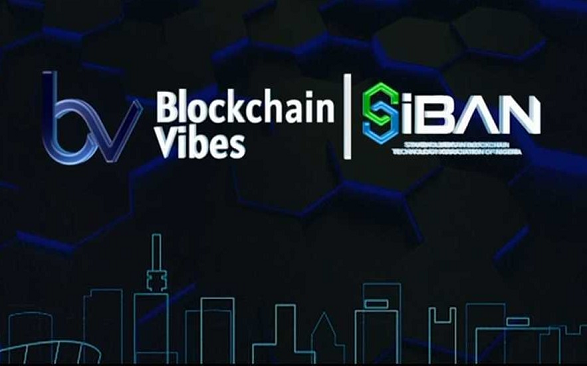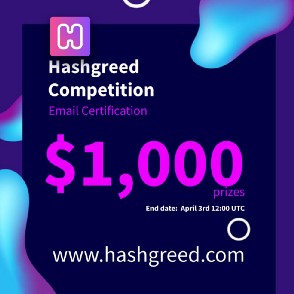Senator Ihenyen, the president of the Stakeholders in Blockchain Technology Association of Nigeria (SiBAN), has urged the Central Bank of Nigeria (CBN) and other important players in the nation’s financial sector to chart a course for the future regulation of the blockchain and cryptocurrency industries.
Ihenyen stated that a point of convergence is required due to the exceptional growth of the blockchain business in Nigeria during the opening peer-to-peer conference hosted by SiBAN over the weekend at the Civic Event Centre in Lagos.
“What we represent is a self-regulatory body in Nigeria’s blockchain industry. With the P2P conference, we want to have a platform where innovators, as well as policymakers and other stakeholders within and outside the industry, can have conversations around blockchain adoption, policy and regulation.
“We will need a re-engagement of stakeholders, lawmakers, and policymakers so that we can have a proper regulatory framework for Blockchain adoption in the country. In this way, we will be able to converge and not have this current divergence. In this way, the CBN will be able to understand that decentralised applications or finance or cryptocurrencies are financial technologies, its fintech. It is not about banning or restricting. It is about understanding the pros and cons and working with all industry stakeholders, including banks and law enforcement agencies to ensure that we have transparency in the space,” he said.
Jude Ozinegbe, the P2P Conference Planning Committee chairman, stated that the massive attendance by financial sector stakeholders, particularly those who participate in the alternative finance segment, is strong evidence of the immense power SiBAN wields.
He also expressed gratitude to the businesses that had contributed significantly to the conference’s success through sponsorship and partnership.
He mentioned several of these organizations, including Alpha Ltd., ABCC, BEI, thinkcrypto, Blockchain Vibes, Everest, Crypto Hills, Cryptopreacher Blockchain Academy, Sinso Technologies, Market Advance, Near Finance Protocol, Bitget, Empowered CryptoHub, Smart Investors Hub, Super Woman, GIDA, LUPPON, Finsmart, CryptoMart, and MoEX Consult.
The conference’s theme, “CeFi, DeFi & TradFi: is there a need for Convergence in the Current Divergence? “, was addressed by specialists from several sectors of the alternative finance ecosystem. The first keynote address was given by Olutoyin Oloniteru, founder and chairman of the Crypto Economy Institute of Africa (CEIAfrica), on the subject of “Emergence of CeFi, DeFi, & TradFi: Securing the Future in the Current Divergence.”
Speaking on the topic of “The Emergence of CeFi, DeFi, and TradFi: a Concordium Perspective,” Lars Seier Christensen, Chairman of Concordium and a pioneer in FX and derivative trading as well as the co-founder and former co-CEO of Saxo Bank, gave the audience a global perspective on the discussion’s theme.
More speakers also spoke at the conference’s panel sessions, which explored the conference’s theme in greater detail. ‘Navigating the Opportunities and Risks in CeFi and DeFi, and Exploring Possible Opportunities in TradFi,’ is the first chapter.
AbikureTega, Team Lead, Kumon Wallet; Chuta Chimezie, Founder, BNUG & Vice-President, BiCCoN; Eric Anan, Founder/CEO, Global DCA; and Rume Ophi, Founder, Cryptopreacher Blockchain Academy were in their element during the lively discussion, imparting expertise on the topic. Chioma Onyekelu, CCI, A&D Forensics, acted as the moderator for the discussion.
SiBAN is a self-regulatory organization (SRO), a 2018 association of participants in the blockchain and cryptocurrency industries.
What You Should Know About SiBAN
Stakeholders in Blockchain Technology Association of Nigeria (SiBAN), is an association of blockchain and cryptocurrency industry participants founded in 2018 to act as a self-regulatory body in the direction of a friendlier, safer, and more significant blockchain and cryptocurrency industry in Nigeria.
By promoting blockchain & crypto education, encouraging the adoption of model self-regulatory policies in line with international best practices, and working with relevant bodies to ensure that innovation is not stifled by regulation, consumer protection and investor safety are safeguarded, they work with their registered members to promote a free market for blockchain & crypto players.
SiBAN is an association with a decentralized structure based on the right to free speech and association guaranteed by Section 40 of the Nigerian Constitution. Consensus is reached by all registered nodes (members) within the SiBAN community.
SiBAN was honoured as “The Best Blockchain Association in Africa” during the Nigeria Fintech Week 2021. We continue to support an innovative and inclusive regulatory framework for cryptocurrencies and blockchain in Nigeria.
Benefits of Being A SiBAN Member
As a member of SiBAN, you will receive a variety of advantages, such as access to community resources on blockchain technology, the chance to support the development and adoption of blockchain technology in Nigeria by participating in the association’s activities, free or discounted access to conferences and workshops hosted by the SiBAN community, exclusive access to SiBAN’s registered-member-only platform, and access to SiBAN’s network of experts, virtual asset traders, blockchain developers, and other professionals.
Other advantages include the chance to converse with regulators and policymakers; the chance to speak as a keynote, guest, or panel session speaker at blockchain conferences and workshops organised by the SiBAN community; the chance to display your blockchain or cryptocurrency products or services to the audience or boost your brand or corporate image at conferences or programmes organised by the SiBAN community for free or at a discounted rate; the chance to take part in meetups, training, and other activities; and finally, the chance to exhibit your products or services at SiBAN conferences or programs.
SiBAN Contact
You can contact them via: contact@siban.org.ng
They are located @Buffalo Building, 2 Allen Avenue, Ikeja, Lagos. Gabriel Akinmade Plaza, Lagos.
Their phone number is +2348171552905
The financial sector of Nigeria, including the CBN should make ventures in blockchain technology easier. This would make things easier for the citizens and boost the economy. Any interested in blockchain technology need to be acquainted with SIBAN. A partnership with SiBAN will be profitable.






